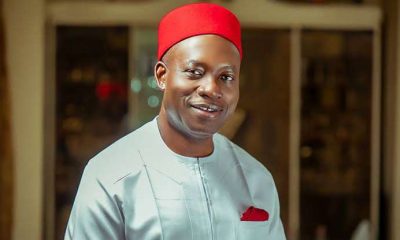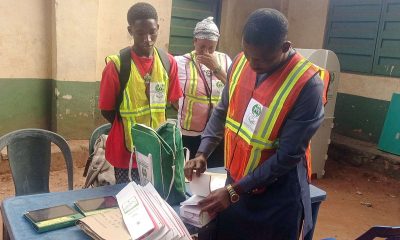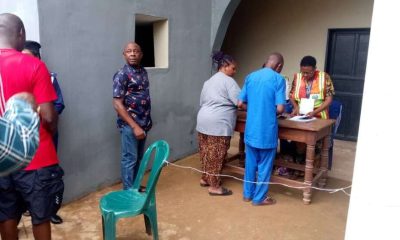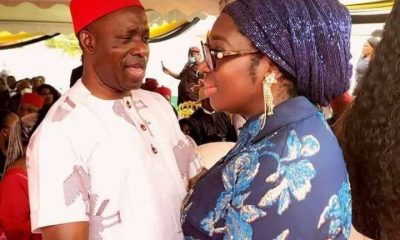Nation
Soludo tackles Trump: Nigeria’s violence not religious, says ‘Africa didn’t invade US over #BlackLivesMatter’
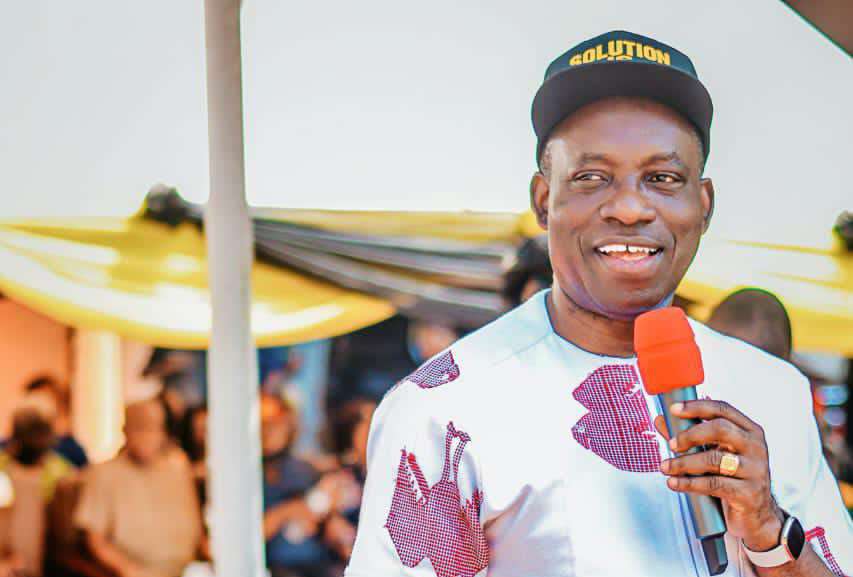
Anambra State governor, Prof. Chukwuma Charles Soludo, has criticised United States President Donald Trump over his recent threat to launch a military strike on Nigeria, saying the country’s internal security problems are far more complex than religious persecution.
Speaking during a media chat on Sunday, Soludo said Trump’s remarks – which framed Nigeria’s violence as a war against Christians – were misleading and ignored the true nature of the country’s multifaceted security crisis.
According to the governor, while the United States is free to express opinions on global matters, any form of action must respect Nigeria’s sovereignty and conform to international law.
“America has the right to have its own views about what is happening elsewhere,” Soludo said. “But when it comes to what it does, it must act within the realm of international law.”
He said most killings in the South-East region have nothing to do with religion, noting that those behind the violence are themselves Christians.
“People are killing themselves – Christians killing Christians. The people in the bushes are Emmanuel, Peter, John – all Christian names. They have killed thousands of our youths, and it has nothing to do with religion,” Soludo explained.
The governor dismissed Trump’s “guns-a-blazing” threat as reckless, saying that by such logic, African countries could also have invaded the United States at the height of the Black Lives Matter protests over police brutality and racial injustice.
“You had policemen killing blacks during the #BlackLivesMatter movement,” Soludo said. “Should Africa have invaded America because blacks were being killed? That logic simply doesn’t stand.”
He called for a deeper national and diplomatic conversation to address concerns raised by the U.S., insisting that dialogue – not provocation – is the path to peace.
“I think there’s a need for a deeper conversation. Nigeria is such a big and complex country. The government is doing a lot to protect lives, and it must continue to engage all sides constructively,” he said.
Soludo, who is seeking re-election on Saturday, further clarified that the South-East’s crisis should not be mistaken for religious persecution, noting that the region is overwhelmingly Christian.
“In this part of the country, we are 95 percent Christian,” he said. “The people in the bushes killing others are Christians too. This crisis is political, economic, and social – not religious. Nigeria will overcome, and it will end in dialogue.”
Last Friday, Trump reignited diplomatic tensions when he announced that Nigeria had been redesignated as a “country of particular concern,” accusing the government of allowing the “mass killing of Christians.”
He warned that the United States “may very well go into that now disgraced country guns-a-blazing to wipe out the Islamic terrorists killing Christians.”
Following the remarks, U.S. Secretary of War Pete Hegseth said his department was preparing for possible action if the Nigerian government failed to address the alleged killings.
Trump’s comments have drawn mixed reactions globally, with right-wing lawmakers such as Senator Ted Cruz backing his position. Cruz recently introduced the Nigeria Religious Freedom Accountability Act of 2025, a bill that seeks sanctions against Nigerian officials accused of facilitating religious violence.
Soludo’s response adds to a growing list of Nigerian voices rejecting the U.S. narrative. Many have argued that while Nigeria faces serious insecurity challenges, portraying it as a religious genocide grossly distorts the facts and undermines ongoing local efforts to restore peace.
The Black Lives Matter movement, to which Soludo referred, began as a response to racial injustice and police brutality in the United States. In 2020, it sparked one of the largest protest waves in American history, with more than 26 million people marching across all 50 states and 93 other countries to demand justice for victims like George Floyd.




